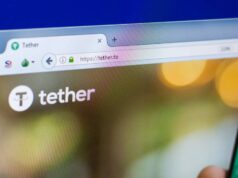In a historic decision, the U.S. Fifth Circuit Court of Appeals has overturned sanctions imposed by the Treasury Department’s Office of Foreign Assets Control (OFAC) on Tornado Cash, a decentralized cryptocurrency mixer. The court ruled that immutable smart contracts – key to Tornado Cash’s functionality – do not meet the definition of “property” under the International Emergency Economic Powers Act (IEEPA). They are therefore beyond the reach of U.S. sanctions. This precedent-setting judgment is celebrated as a significant victory for the principles of decentralization and privacy within the blockchain ecosystem.
A Win for Decentralization and Open-Source Technology
The ruling is a major development for decentralized technologies. It highlights the importance of distinguishing between the neutral tools of innovation and their potential misuse. Tornado Cash operates as a privacy-focused protocol that enables users to obscure transaction details on the Ethereum blockchain through immutable smart contracts. These programs run without the need for human intervention and cannot be altered post-deployment. The court’s decision underscores the notion that such immutable software, as a piece of open-source code, cannot be treated as a tangible entity subject to sanctions.
This outcome is being lauded by privacy advocates and blockchain innovators. They have long argued that governmental overreach into the regulation of decentralized tools stifles technological progress. Industry leaders see this as a step toward safeguarding the principles of decentralization and innovation. It ensures that foundational blockchain technologies remain open and accessible to all.
TORN Token Skyrockets in Response
The court’s decision had immediate ripple effects on the cryptocurrency market. Tornado Cash’s governance token, TORN, surged in value – climbing as much as 400% according to reports. The dramatic price increase reflects renewed investor confidence and enthusiasm within the crypto community. However, the surge also illustrates the volatile nature of cryptocurrency markets. Regulatory news often plays a critical role in shaping market sentiment.
Privacy vs. Criminal Activity: A Controversial Tool
While the decision represents a triumph for decentralization, it does not absolve Tornado Cash of controversy. The platform has been widely criticized for its role in facilitating illicit activities, including money laundering. OFAC originally sanctioned Tornado Cash in 2022. It alleged the platform had been used to launder billions of dollars, including funds tied to North Korean hackers. These allegations remain a critical aspect of the platform’s legacy, and they highlight the dual-use nature of privacy-enhancing technologies.
The case underscores a broader debate within the cryptocurrency ecosystem: How can privacy be preserved in financial transactions without enabling criminal misuse? Tornado Cash’s ability to anonymize transactions exemplifies this challenge, making it a focal point for policymakers and law enforcement alike.
Implications for Blockchain Regulation
The ruling also sets a critical precedent for how decentralized technologies are regulated. By limiting the government’s ability to sanction immutable software, the decision may influence future approaches to blockchain oversight. Regulators now face the challenge of developing frameworks that balance innovation with security – protecting open-source technologies while addressing legitimate concerns over misuse.
The court’s decision could pave the way for other decentralized platforms to assert their independence from traditional regulatory structures. However, the ongoing scrutiny of Tornado Cash’s operations serves as a reminder that privacy-focused tools remain a double-edged sword. They offer both benefits and risks.
>>> Read more: Crypto Developer or Money Launderer? Alexey Pertsev Convicted
The U.S. Fifth Circuit Court of Appeals’ ruling to overturn Tornado Cash sanctions represents a landmark moment in the evolution of blockchain regulation. It is a resounding affirmation of the importance of decentralization and the neutrality of open-source software. At the same time, it reignites discussions about the role of privacy-enhancing technologies in fostering financial independence and criminal activity.
For the blockchain community, the decision is a cause for cautious celebration. It’s a victory for innovation tempered by the enduring challenge of addressing the darker sides of privacy in a digital age.
Readers’ frequently asked questions
What exactly are immutable smart contracts, and why can’t they be sanctioned?
Immutable smart contracts are self-executing programs stored on a blockchain. Once deployed, they operate autonomously according to their code. They cannot be altered, deleted, or stopped by anyone, including their creators. This immutability ensures that the software functions predictably and transparently. In the case of Tornado Cash, the court ruled that these smart contracts are not “property” because they lack physical or legal ownership. They exist as pieces of code on a decentralized network, making them fundamentally different from entities or assets that can be sanctioned. As a result, sanctioning Tornado Cash’s smart contracts would be akin to sanctioning the code itself, which does not align with the legal definition of “property.”
Why is Tornado Cash controversial if its technology is neutral?
The controversy surrounding Tornado Cash stems from its dual-use nature. While its technology serves legitimate privacy needs – allowing users to mask transaction details to protect their financial information – it has also been exploited for illicit activities. Criminals, including North Korean hackers, have reportedly used Tornado Cash to launder stolen funds and obscure the origins of cryptocurrency. This misuse has drawn criticism and regulatory scrutiny. The court’s decision focused on the legality of sanctioning the underlying technology, not its misuse. However, the ruling does not eliminate concerns about how privacy-focused tools can be leveraged for criminal purposes, highlighting the need for balanced regulatory approaches.
What does this ruling mean for the average cryptocurrency user?
For the average cryptocurrency user, the court’s ruling primarily reinforces the idea that decentralized tools like Tornado Cash are considered neutral technologies and not inherently illegal. This means users can continue to interact with smart contracts or other open-source blockchain technologies without fear of being directly targeted by sanctions, as long as they use them legally. However, it’s important to note that the ruling does not absolve individuals of responsibility for how they use such tools. If a user employs Tornado Cash or similar platforms for illegal purposes, they remain subject to prosecution. The decision essentially ensures that the technology itself isn’t criminalized, focusing accountability on how it’s used instead.
What Is In It For You? Action Items You Might Want to Consider
Keep an Eye on Tornado Cash-Related Market Movements
The recent court ruling has caused a sharp increase in the value of Tornado Cash’s governance token, TORN. If you’re considering trading TORN, monitor its price movements closely, as regulatory news often leads to high volatility. Use technical analysis tools to identify potential entry or exit points, but be cautious—such spikes can be followed by rapid corrections.
Understand the Risks of Privacy-Focused Tools
If you’re using or considering platforms like Tornado Cash, ensure you’re fully aware of their legal and ethical implications. While privacy tools are valuable for protecting your financial anonymity, they are also under intense regulatory scrutiny. Ensure that your activities comply with local laws to avoid any unintended legal consequences.
Diversify Your Portfolio with Privacy Tokens, but Carefully
Privacy-focused cryptocurrencies and tokens, such as TORN, may see increased interest following this ruling. If you’re interested in diversifying into this niche, research similar projects like Zcash or Monero. However, invest only what you can afford to lose, as privacy tokens often face regulatory and market risks that can lead to sudden value swings.











[…] >>> Read more: Tornado Cash Sanctions Overturned: A Win for Decentralization […]
[…] six Tornado Cash users, financially backed by cryptocurrency exchange Coinbase. In November 2024, a U.S. appeals court ruled that the Treasury had overstepped its authority by sanctioning the platform’s immutable smart contracts. The court determined these contracts […]